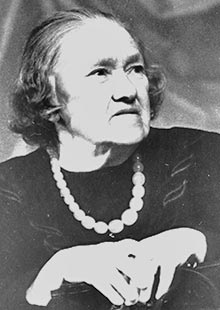
Helsinki is the capital and most populous city in Finland. It is on the shore of the Gulf of Finland and is the seat of southern Finland's Uusimaa region. About 682,000 people live in the municipality, with 1.26 million in the capital region and 1.6 million in the metropolitan area. As the most populous urban area in Finland, it is the country's most significant centre for politics, education, finance, culture, and research. Helsinki is 80 kilometres (50 mi) north of Tallinn, Estonia, 400 kilometres (250 mi) east of Stockholm, Sweden, and 300 kilometres (190 mi) west of Saint Petersburg, Russia. Helsinki has significant historical connections with these three cities.

The Declaration of Independence, formally titled The unanimous Declaration of the thirteen united States of America in both the engrossed version and the original printing, is the founding document of the United States. On July 4, 1776, it was adopted unanimously by the 56 delegates to the Second Continental Congress, who convened at Pennsylvania State House, later renamed Independence Hall, in the colonial era capital of Philadelphia. The 56 delegates who signed the Declaration of Independence came to be known as the nation's Founding Fathers.

Pehr Evind Svinhufvud af Qvalstad was the third president of Finland from 1931 to 1937. Serving as a lawyer, judge, and politician in the Grand Duchy of Finland, which was at that time an autonomous state under the Russian Empire’s rule, Svinhufvud played a major role in the movement for Finnish independence. He was the one who presented the Declaration of Independence to the Parliament.

The Helsinki Final Act, also known as Helsinki Accords or Helsinki Declaration, was the document signed at the closing meeting of the third phase of the Conference on Security and Co-operation in Europe (CSCE) held in Helsinki, Finland, between 30 July and 1 August 1975, following two years of negotiations known as the Helsinki Process. All then-existing European countries except Andorra and Hoxhaist Albania, as well as the United States and Canada, signed the Final Act in an attempt to improve the détente between the East and the West. The Helsinki Accords, however, were not binding as they did not have treaty status that would have to be ratified by parliaments. Sometimes the term "Helsinki pact(s)" was also used unofficially.

Human subject research is systematic, scientific investigation that can be either interventional or observational and involves human beings as research subjects, commonly known as test subjects. Human subject research can be either medical (clinical) research or non-medical research. Systematic investigation incorporates both the collection and analysis of data in order to answer a specific question. Medical human subject research often involves analysis of biological specimens, epidemiological and behavioral studies and medical chart review studies. On the other hand, human subject research in the social sciences often involves surveys which consist of questions to a particular group of people. Survey methodology includes questionnaires, interviews, and focus groups.

The Finnish Declaration of Independence was adopted by the Parliament of Finland on 6 December 1917. It declared Finland a fully independent nation, ending its status as Grand Duchy of Finland, an autonomous state ruled by Russia, with reference to a bill simultaneously delivered to the Parliament to make Finland a fully independent republic instead.

Greater Finland is an irredentist and nationalist idea which aims for the territorial expansion of Finland. It is associated with Pan-Finnicism. The most common concept saw the country as defined by natural borders encompassing the territories inhabited by Finns and Karelians, ranging from the White Sea to Lake Onega and along the Svir River and Neva River—or, more modestly, the Sestra River—to the Gulf of Finland. Some extremist proponents also included the Kola Peninsula, Finnmark, Swedish Meänmaa, Ingria, and Estonia.

Finland declared its independence on 6 December 1917. The formal Declaration of Independence was only part of the long process leading to the independence of Finland.
A risk–benefit ratio is the ratio of the risk of an action to its potential benefits. Risk–benefit analysis is analysis that seeks to quantify the risk and benefits and hence their ratio.
The Declaration of Helsinki is a set of ethical principles regarding human experimentation developed originally in 1964 for the medical community by the World Medical Association (WMA). It is widely regarded as the cornerstone document on human research ethics.

Independence Day is a national public holiday in Finland and a flag flying day held on 6 December to celebrate Finland's declaration of independence from Russia after the Bolsheviks took power in late 1917.

Sofiya Vasilyevna Kalistratova, also known as Sofia Kallistratova was a public defense lawyer in the Soviet Union. She defended various Soviet dissidents and from 1977 was a member of the Moscow Helsinki Group (MHG), distributing information about human rights violations in the Soviet Union.

"Hear My Plea" is a song by Albanian singer and songwriter Frederik Ndoci. It was issued as part of a CD compilation on 20 April 2007 by CMC Records. The English-language song was written by Pandi Laço and composed by Adrian Hila. "Hear My Plea" represented Albania in the Eurovision Song Contest 2007 in Helsinki, Finland, after Ndoci won the pre-selection competition, Festivali i Këngës 45, with the song's Albanian-language version "Balada e Gurit". The country failed to qualify for the grand final in 17th place, marking its second non-qualification in the contest. During his dark-themed show of the song, Ndoci was accompanied by an instrumentalist and four backing vocalists. An accompanying music video for the song premiered on the official YouTube channel of the Eurovision Song Contest on 5 April 2007.

The Helsinki Headline Goal was a military capability target set for 2003 during the December 1999 Helsinki European Council meeting with the aim of developing a future European Rapid Reaction Force. There was much interest in the idea of a single EU military force, and inexact characterisations of the initiative led to imprecise journalistic depictions about a unified European army.
Romanos is a small municipality in Campo de Daroca, in Aragón. It was an important town during the War of the Two Peters, and has many historic sites, such as castles and churches, some of which are part of the 156 monuments that the Government of Aragon presented to UNESCO for the declaration of the sites as historic protected sites. They were confirmed as this in 2001 in the UNESCO meeting in Helsinki.
A unilateral declaration of independence (UDI) or "unilateral secession" is a formal process leading to the establishment of a new state by a subnational entity which declares itself independent and sovereign without a formal agreement with the state from which it is seceding. The term was first used when Rhodesia declared independence in 1965 from the United Kingdom (UK) without an agreement with the UK.

The Saint-Malo declaration was a document signed in December 1998 by British prime minister Tony Blair and French President Jacques Chirac, who met to advance the creation of a European security and defense policy, including a European military force capable of autonomous action. The summit where the document was signed took place at the French coastal resort of Saint-Malo.
In 1965 a human rights movement emerged in the USSR. Those actively involved did not share a single set of beliefs. Many wanted a variety of civil rights — freedom of expression, of religious belief, of national self-determination. To some it was crucial to provide a truthful record of what was happening in the country, not the heavily censored version provided in official media outlets. Others still were "reform Communists" who thought it possible to change the Soviet system for the better.

This article outlines the history of the Common Security and Defence Policy (CSDP) of the European Union (EU), a part of the Common Foreign and Security Policy (CFSP).












